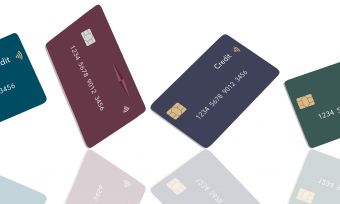KEY POINTS:
- Credit cards provide revolving credit that offers short, interest-free periods, but credit cards often have higher interest rates than personal loans.
- Personal loans can provide large sums for major purchases and longer repayment periods.
- It’s important to thoroughly investigate the fees, charges and interest rates associated with any credit product.
Personal loans and credit cards are popular financial products. But which is better, a personal loan or a credit card? There is no one-size-fits-all answer to this, as personal loans and credit cards have different pros and cons.
How does a personal loan work?
Part of the appeal of personal loans is that they tend to be very straightforward financial products.
Set borrowing over a fixed term
In most cases, a personal loan provides a set amount, which is repaid over a fixed term, usually between 12 months and seven years.
Interest rates on personal loans are usually fixed, although they can be variable. One of the benefits of a fixed rate is that repayments stay the same throughout the loan term, which can make budgeting easier.
The interest rate on a variable loan can increase or decrease during the loan term. That’s great if the interest rate goes down, but not so great if rates climb.
Increasing flexibility
Personal loans are becoming more flexible. Some lenders allow borrowers to make extra repayments, which can help to pay off the debt sooner, thereby lowering overall interest costs. Some loans allow you to make unlimited repayments, while others cap the amount. Be aware that some providers charge early repayment fees.
A handy feature related to the ability to make extra repayments is a loan redraw facility. This allows borrowers to access any extra repayments they’ve made if they need the cash back. However, not all personal loans offer this feature.
Wide range of loan purposes
Personal loans can be used for many purposes, including to buy a car or boat, and to fund home improvements, a wedding, further education or medical procedures.
Searching for the Cheapest Personal Loan?
If you’re looking for the cheapest personal loan, Canstar’s personal loan comparison tables can help. The table below displays the sponsored unsecured personal loan products available on Canstar’s database for a three-year loan of $10,000 in Auckland, with links to lenders’ websites. Use Canstar’s personal loan comparison selector to view a wider range of products on Canstar’s database. Canstar may earn a fee for referrals.
Compare personal loans with Canstar
How does a credit card work?
Credit cards offer a revolving line of credit. This means you can draw down funds up to a set credit limit, repay the money, then draw it down again at a later date. Therefore, the credit offered by a credit card can revolve indefinitely, and you don’t need to reapply for more funds as you would with a personal loan.
Compare credit cards with Canstar
Interest-free days
Most credit cards offer an interest-free period, usually 44 or 55 days, before interest charges are added to your card balance. Note that interest-free days only apply if you pay off the card balance in full each month.
Interest charges are based on the card balance, not the credit limit
Interest is charged on a card’s monthly balance, not its credit limit. For example, if you have a credit limit of $5000, but only have an outstanding card debt of $500, you’d pay interest on $500, not $5000.
And if you pay off your card balance in full each month, you can avoid paying any interest on your card purchases.
Flexible card repayments
If you carry a card balance at the end of the statement period, the card issuer will only require you to make a minimum repayment. This can be as little as 2% of the outstanding debt.
Sticking to minimum repayments may be easier on your budget than paying off the full card balance, but it will incur interest costs that will be added to your outstanding debt. And if you continue to pay only the minimum repayment each month, your interest costs can grow significantly.
Opportunities to earn reward points
Credit cards can come with reward programs, which offer cardholders points based on their card spending. These rewards can then be redeemed for cash, flights and other goods and services.
For cardholders who can avoid credit card interest charges, these reward programs offer potential freebies. However, credit cards offering reward programs often come with higher interest rates and annual fees. So the freebies on offer can come at a cost if you don’t clear the card’s outstanding balance each month and accrue interest charges.
Complimentary insurance
Some credit cards offer complimentary insurance, including travel insurance and purchase protection insurance. But here, too, it pays to consider if these types of extras involve paying higher card fees or interest rates.
Which have higher interest rates: personal loans vs credit cards?
It’s always important to shop around when comparing financial products, as costs vary widely between providers. As a general rule, though, personal loans tend to have lower interest rates than credit cards, especially if you have a good credit rating.
But the cost of using a credit card depends on your spending and repayment patterns. If you can clear your balance each month you won’t incur any interest charges.
Which have higher fees – personal loans vs credit cards?
A personal loan can come with fees. These include a one-off loan application fee and, potentially, monthly account-keeping fees. There can also be early repayment fees, depending on the loan agreement.
Credit cards can come with fees, too. Many, although not all, credit cards charge annual fees. And credit cards, like personal loans, often charge late payment fees if a regular repayment is missed. Fees can also apply if you exceed your card’s credit limit.
Other possible fees include cash advance fees if you use the card to withdraw cash from an ATM, and foreign currency conversion fees that can apply if you use your card while overseas or to make international purchases online.
Which is better, personal loans or credit cards?
Personal loans and credit cards have the potential to be extremely useful, but each comes with pros and cons:
Personal loans
Advantages
- Can be for large sums, suitable for expensive purchases, such as cars, boats and holidays
- Interest rates tend to be lower compared to credit cards, especially if you have a good credit rating
- Repayments can be made over long periods
- Up-front costs of borrowing
- Set repayment schedule
Disadvantages
- Interest is charged on the outstanding loan balance until it is paid off in full
- Loan establishment and ongoing fees can be expensive
- Application process can be more involved
Credit cards
Advantages
- Flexibility to access funds when you need money, up to a set credit limit
- Interest is only paid on the funds drawn down
- Interest-free periods mean it’s possible to avoid interest charges
- Cash advances are usually available if money is needed in an emergency, although extra costs apply
- Possibility of reward programs and extras such as complimentary travel insurance
Disadvantages
- Many cards have annual fees, which can be expensive
- Often higher standard interest rates than personal loans
- Access to credit can make it tempting to overspend
Whether you choose a personal loan or credit card, it’s important to shop around and compare different products, rates, fees and features, to be confident you’ve the product best-suited to your financial needs.
Compare personal loans with Canstar
The table below displays some of the unsecured personal loan products available on Canstar’s database for a three-year loan of $10,000 in Auckland (some may have links to lenders’ websites). The products are sorted by Star Rating (highest to lowest) followed by company name (alphabetical). Use Canstar’s personal loan comparison selector to view a wider range of products on Canstar’s database. Canstar may earn a fee for referrals.
Compare personal loans with Canstar
About the author of this page
Bruce Pitchers is Canstar NZ’s Content Manager. An experienced finance reporter, he has three decades’ experience as a journalist and has worked for major media companies in Australia, the UK and NZ, including ACP, Are Media, Bauer Media Group, Fairfax, Pacific Magazines, News Corp and TVNZ. As a freelancer, he has worked for The Australian Financial Review, the NZ Financial Markets Authority and major banks and investment companies on both sides of the Tasman.
In his role at Canstar, he has been a regular commentator in the NZ media, including on the Driven, Stuff and One Roof websites, the NZ Herald, Radio NZ, and Newstalk ZB.
Away from Canstar, Bruce creates puzzles for magazines and newspapers, including Woman’s Day and New Idea. He is also the co-author of the murder-mystery puzzle book 5 Minute Murder.





Share this article